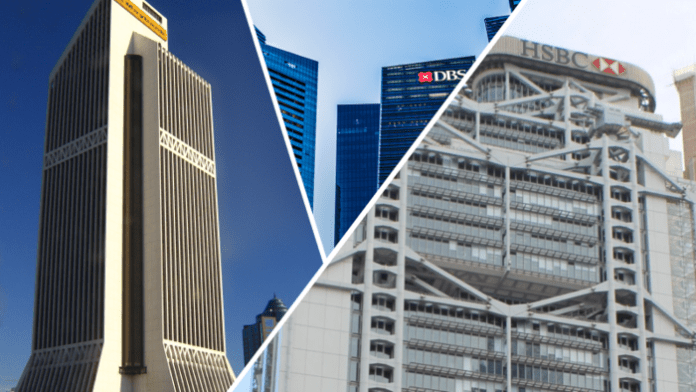The Malaysian banking sector saw Feb 2024 system loans rising by 5.8% which was within Kenanga’s 5.5%-6.0% expectation for CY24.
Kenanga Investment Bank (Kenanga), in its Sector Update today (Apr 1), said while household trajectories are still held by a growing mortgage and hire purchase book, they noted that businesses are seeing encouraging inflows that may be in support of better economic prospects.
Industry GIL of 1.64% is steady state and will likely not remain a concern in the immediate term.
Meanwhile, deposits growth (4.8%) appears to be lagging but we opine higher bank-ins may occur progressively, possibly lifting CASA readings as fixed deposit interests are expected to taper off.
Kenanga anticipates the OPR to remain at 3% throughout CY24, with any change likely to have a downside bias to reflect the tone set by regional monetary policies.
Kenanga maintained their OVERWEIGHT call on the sector, with its resilience to be emboldened by better economic prospects fuelled by infrastructure projects and investments.
For 2QCY24, Kenanga highlighted: (i) PBBANK (OP; TP: RM5.10) for sustainable performances from its mortgage books, (ii) RHBBANK (OP; TP: RM7.25) for its leading dividend prospects, and (ii) ABMB (OP; TP: RM4.30) as a small cap favourite given its largely comparable fundamentals which beats certain large caps.
Bigger load up. On the business front (+5.3%), retail and financial services led in terms of segmental performances. Kenanga noted that on a MoM basis, business loans (+0.7%) overtook household loans (+0.3%) in terms of growth as they had expected a faster pacing to meet upcoming Raya festivities. (refer to Tables 1−3 for breakdown of system loans).
Scaling down applications from front-loaded signing. Following Jan 2024 lumpy applications, Kenanga saw a meaningful easing in both household loans (-15%) and business loans (-6%) on a YoY basis. The difference was more stark on a MoM basis (-18%) but also stood at the lowest levels of <RM100m since Jan 23 but this is reflective of the earlier months being seasonally softest.
Asset quality staying still. Industry GIL maintained at 1.64% (Jan 2024: 1.64%, Feb 2023: 1.76%) with industry loan loss coverage setting in at 92.4% (Jan 2024: 93.0%, Feb 2023: 96.3%). Kenanga opined that past pandemic concerns are not likely to remain in the market as they look towards a return to sustainable business environments.
Previously troubled sectors such as construction and hospitality are expected to be rejuvenated with stronger infrastructure project flows as well as higher tourist arrivals. That said, Kenanga does expect a final leg of impairments from retail accounts which clinched on much extended assistance programs following pending expiration.
Cash balances healthy. Kenanga saw system deposits growing at 4.0% YoY (+0.53% MoM), which appears to be below our 5.5%- 6.0% growth expectation for CY24. That said, they opt to consider higher seasonal spending to have taken place and hence expect a pick-up as the year progresses.
CASA levels remained relatively stable at 28.7% (Jan 2024: 28.7%, Feb 2023: 28.6%) and may rise in the coming months as banks seek to readjust termed deposit rates to less generous levels.
Kenanga maintained OVERWEIGHT on the banking sector. Market tailwinds (i.e. persistent loans growth and GDP, better margin retention) are expected to continue outweighing industry headwinds (i.e. inflationary pressures, weaker MYR), which they believe may lead to fewer tests to the sector’s resiliency.
The sector should be of interest with dividend yields still appearing attractive (6%-7%) on most names on top of lower embedded sector volatility as compared to other industries.
Kenanga had seen meaningful moves in share prices with the inflow of foreign investors looking to accumulate sector heavyweights.
Kenanga’s sector top picks for 2QCY24 include PBBANK which could see better leverage on its heavy retail mortgage mix in a stable OPR environment. They also see its possible overlay write-backs to be a catalyst for more generous dividend payouts which may mirror more frequent payouts during the year.
RHBBANK is also favoured for its dividends which Kenanga projects to be the leader (7%-8%) amongst its peers. Its sizeable CET-1 chest of >16% may further keep pay-outs sustainable, with a likely lower emphasis on provision management as pandemic concerns have alleviated.
Meanwhile, its associate Boost Bank may soon enter the public domain which could garner greater interest in the near-term. As for small cap banks, ABMB remains Kenanga’s favourite for its solid fundamentals which are comparable to its large cap peers. Additionally, its leading CASA level may provide the group nimbleness to balance its interest margins with market share acquisition strategies.









